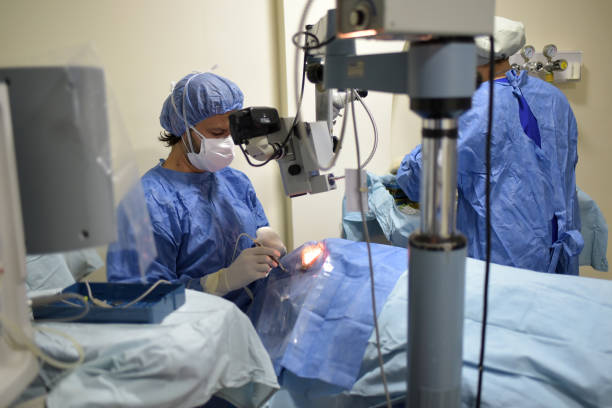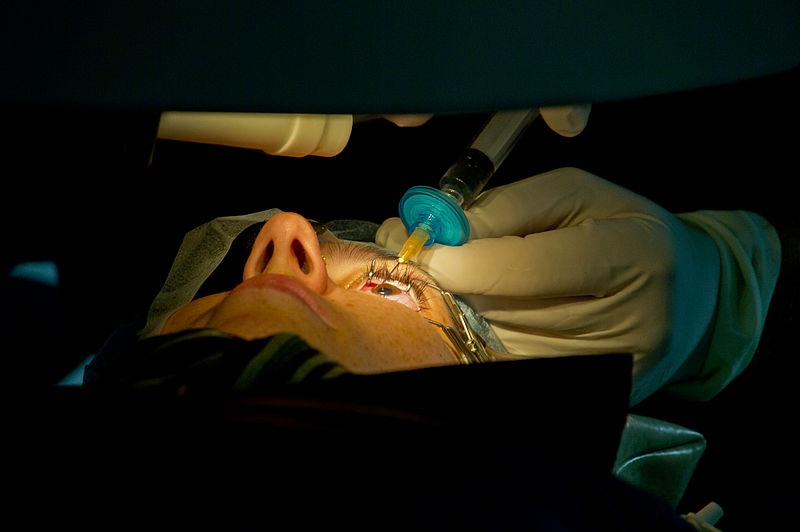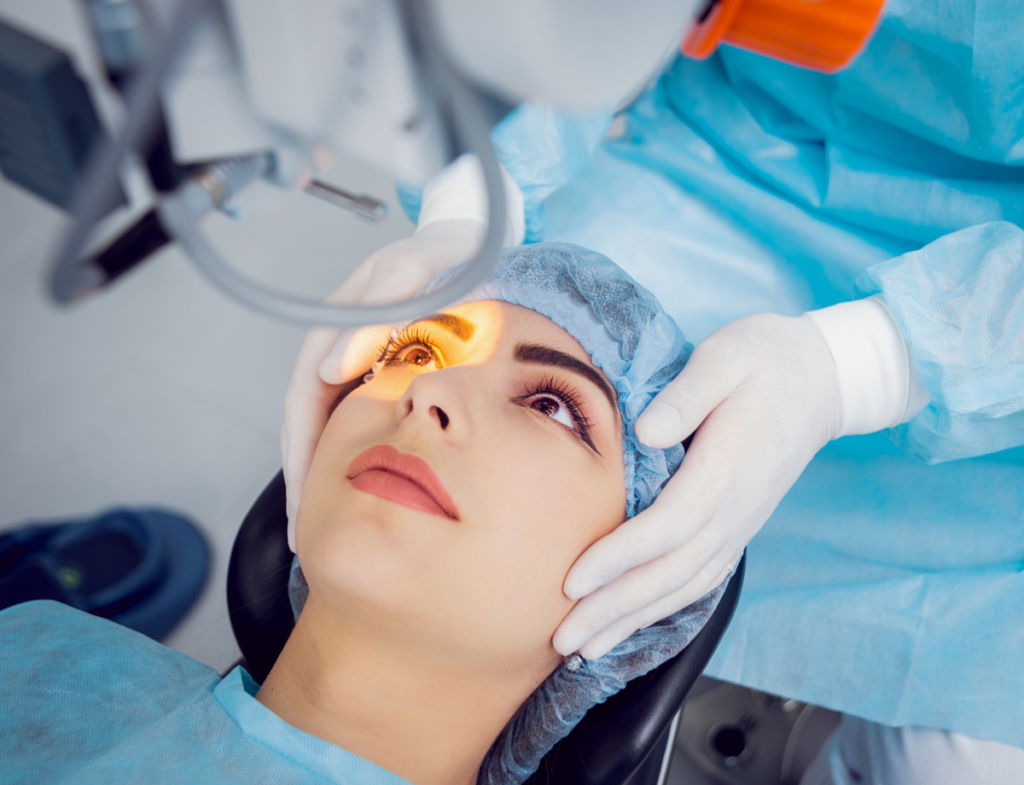Laser eye surgery sydney is becoming the most commonly recommended for people with different vision problems. It has gained more popularity for its incredible efficiency in restoring impaired vision. In most cases, laser eye surgery gives patients perfect vision, far better than what they have ever experienced in the past.

Meanwhile, laser eye surgery is not the only corrective procedure for solving vision problems. A few more options can help you see clearer visions in the medical world today. And they follow a similar process.
People have heard about or seen different refractive surgeries, which is why many mistake lasers for other options. While some use laser eye surgery interchangeably with LASIK surgery, others think laser and LASIK are of different types or kinds.
Do you also know what laser eye surgery means? Or can you separate it from other refractive surgeries? This article will clear all your doubts. You must understand laser surgery and other options to decide when your ophthalmologist recommends it.
What Is Laser Eye Surgery?
Laser eye surgery involves using lasers to reshape the impaired eye’s surface (the cornea) to help you have a sharper and clearer focus. Laser eye surgery is perfect for correcting nearsightedness, farsightedness, astigmatism, and other severe eye problems. You can also read about Best Preparatory Tips to Get You Ready For Laser Eye Surgery by visiting http://2020voicecancer.org/best-preparatory-tips-to-get-you-ready-for-laser-eye-surgery/

Laser eye surgery is a lasting solution for people relying on eyeglasses and contact lenses for a long time. Though some people may still have to use eyeglasses for a short while after the surgery based on the doctor’s prescription, the procedure may give you sharp vision within the first 24 hours.
Who Can Undergo Laser Eye Surgery?
Laser eye surgery is correct for people above 18 years. Suppose you are a few days to 18 years when you are diagnosed. In that case, he will advise you to opt for other corrective measures like eyeglasses or contact lenses pending the time you are over 18 years before enrolling you for the procedure.
Aside from the age factor, a few other factors may qualify you for laser eye surgery. To be eligible, you must:
- Be healthy
- Have thick corneas
- Not be on medications
- Have not had any change in your prescription for the past year
- Not be pregnant or breastfeeding a baby
- Not have severe eye infections like dry eyes and others.
Laser Eye Surgery Vs Lasik Eye Surgery
Laser eye surgery is not different from LASIK. LASIK is a kind of laser surgery. If you still doubt, the acronym’s meaning will give you more insight. LASIK stands for Laser-assisted In Situ Keratomileusis. So, if you have been taking a laser for LASIK, you may not be wrong. After all, LASIK is a laser-assisted procedure

For the records, there are three types of laser eye surgery. The list below explains each in detail.
The 3 Major Types of Laser Eye Surgery
- LASIK – this procedure involves using two lasers. One helps to open a thin flap in the cornea’s surface, while the other is used to reshape the cornea beneath. The surgeon will then have to smoothen the protective flap until it stays in place without stitches. LASIK is the most expensive among the three types. It is also the most commonly performed laser procedure out of other options available. Based on research and success stories, LASIK heals faster than other types of laser procedures.
- SMILE – this procedure involves reshaping the affected cornea through a small, self-sealing hole. During this laser surgery, the ophthalmologist has nothing much to do. A SMILE patient is also expected to have a clearer vision within 24 hours if done adequately with professional hands.
- Surface Laser treatments – there are a few kinds of laser eye surgery in this category. They include PRK, TransPRK and LASEK. During these laser procedures, the surgeon removes the clear skin covering the cornea’s surface. That will allow the surgeon to use the laser to reshape the cornea. After the procedure, the surgeon does nothing to replace the skin. Why? The skins would grow back naturally in a few days.
The above types of laser eye surgery serve almost the same purpose and bring similar results. Despite this, there are a few criteria that qualify you for each of the options. Your ophthalmologist will decide the kind of laser eye surgery most suitable for you after a detailed examination of your entire body. You can also read more about Laser eye surgery by clicking here.
What are the benefits of undergoing laser eye surgery?
The most attractive benefit of laser eye surgery is the permanent solution it gives people with severe vision impediments. After a laser procedure, you don’t have any reason to rely on any eyewear, such as eyeglasses and contact lenses.

Other benefits you can get from undergoing laser eye surgery include:
- Sound sleep – people using eyeglasses or contact lenses mostly have issues at bedtime. The pain and stress of removing the contact before sleeping is enough to spoil the night if much care is not taken. At the same time, sleeping with eyeglasses will limit your flexibility on the mattress and restrict you to a boring sleeping position all night.
- Better performance at work – laser eye surgery makes you more efficient, unlike wearing eyeglasses or contact lenses. It makes you feel lighter and more flexible.
- Ability to drive at night – eye infections can cause night blindness or make you resist exposure to light while driving at night. Laser eye surgery corrects your cornea and allows you to drive at night without hindrances.
Are there any risks involved?
Though laser eye surgery is meant to correct your vision impediments, there can also be a few complications after the surgery. They may include:
- Eye infections such as ocular herpes or keratitis.
- Cataracts
- Glaucoma
- Large pupils
- Dry eyes
- Double vision
- Glare
Most of the above-listed symptoms are expected to surface a few moments after the surgery. Still, they should automatically disappear after a few days. Meanwhile, it is important to continue visiting your eye care provider for professional advice on what to do and avoid to make the healing process faster.
In Conclusion
Laser eye surgery is one of the most beneficial eye surgery that gives a permanent remedy to vision problems. Opting for the procedure you desire is an excellent idea to experience the best vision possible. Meanwhile, it is advisable to first have routines of body examination with your doctor and allow the professional to recommend the best type of laser eye surgery suitable for you.









